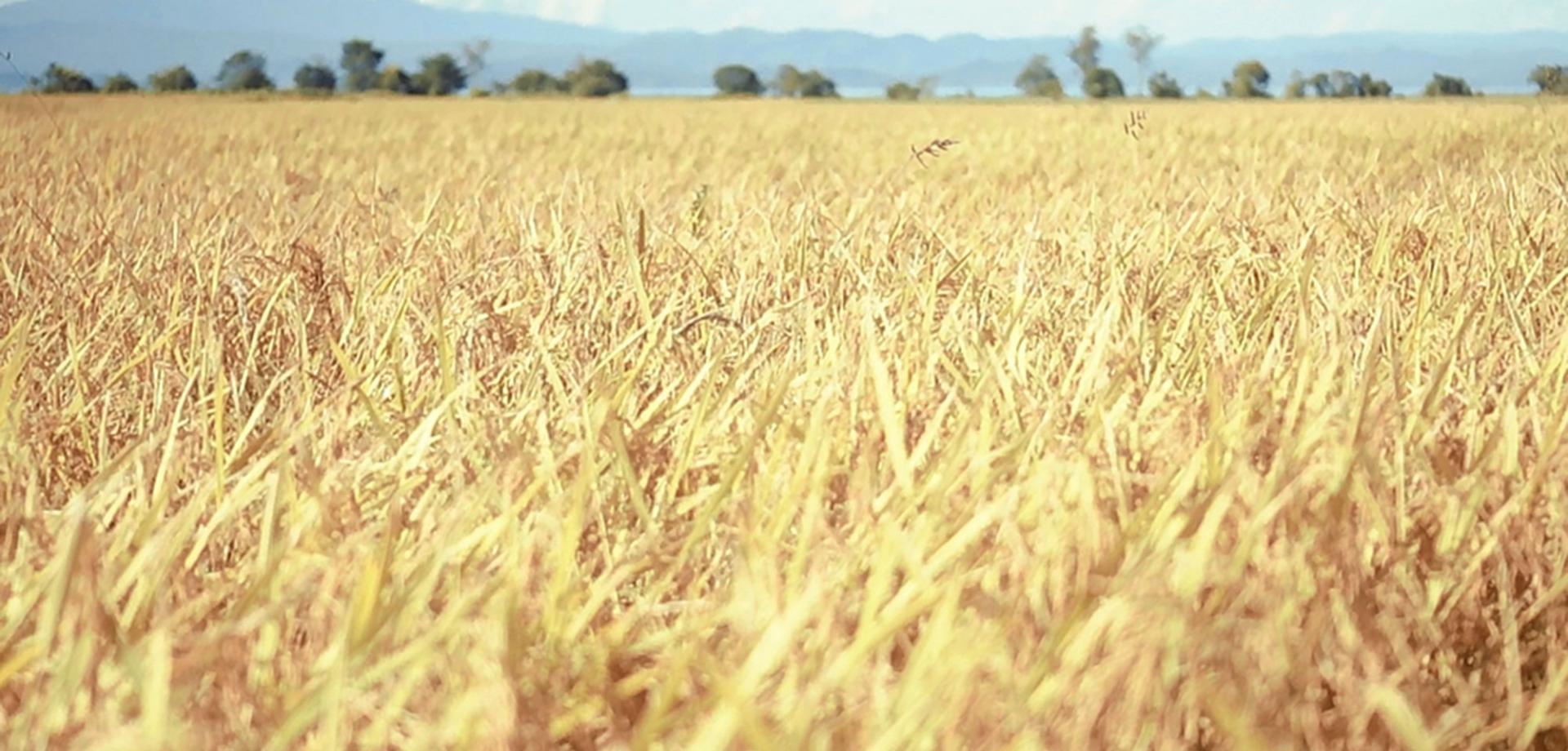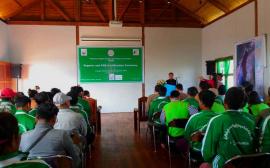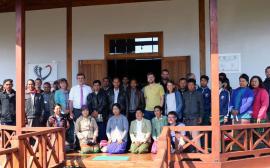Rice farming has a long tradition in Indawgyi Lake that dates back to the 14th century, and still remains the main livelihood of local communities today. The recent political transition of Myanmar gave local farmers access to agrochemicals which has influenced traditional farming practices ever since. Rice fields immediately surround the lake and its associated wetlands, therefore agricultural run-offs such as pesticides and fertilizers pollute groundwater, streams, and the lake, and further increase the influx of nutrients into the lake. First evidence of eutrophication, an over enrichment of water with nutrients that causes excessive growth of plants and algae, can be seen along the western shore of Indawgyi Lake. Fauna & Flora International (FFI) has supported the establishment of the Indawgyi Natural Farming Association (INFA) to mitigate these threats, and support local farmers to adopt organic farming practices. In 2019, they produced their first certified organic rice crop resulting in an increased interest of other farmers to convert to organic farming. FFI is supporting INFA farmers to improve seed selection, rice cultivation techniques, and post-harvesting drying, milling and marketing in order to improve the organic rice quality and revenues for local farmers.
The local population growth and in-migration caused the conversion of the ecologically important, seasonal flooded grasslands to paddy fields. The wildlife sanctuary management with support from FFI has initiated collaborative patrolling and law enforcement to stop these conversions. The conflict-caused internal displacement of Kachin communities further led to an influx of traditional shifting cultivation practices. The once sustainable practice in a large forested landscape with a small human population, is now causing deforestation and forest fragmentation in Indawgyi’s watershed. FFI has supported Kachin farmers to adopt agroforestry and community forestry practices, and introduced more intensive farming systems, growing fruit trees, tea and garlic, as alternatives to shifting cultivation. Green Land has supported Kachin farmers to increase their income through post-harvest processing of agricultural and non-timber forest products.



